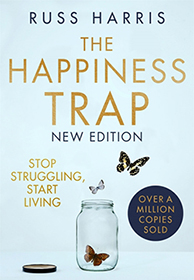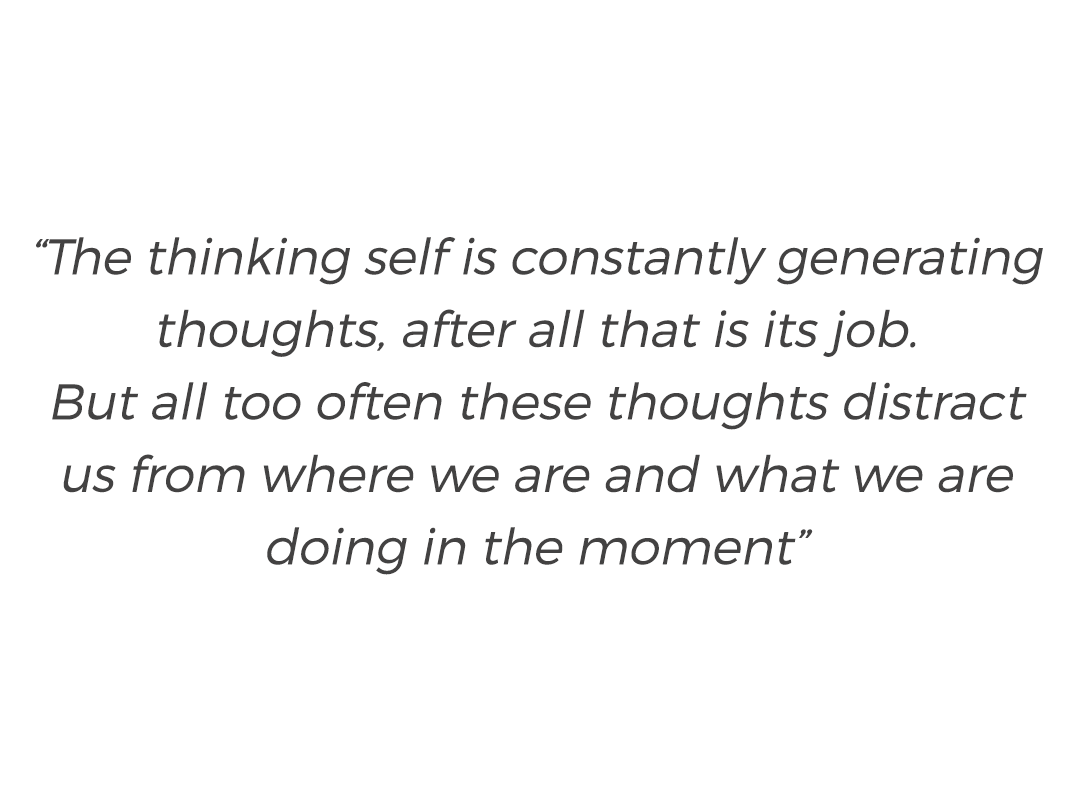
Our minds are great storytellers, constantly forming stories about who we are, how we’re doing, what’s happening in our lives etc. etc.
These stories have immense power over how we feel and so if we get caught up in a storyline that isn’t helpful, our mental health can very quickly deteriorate.
Based on a combination of tools from Acceptance and Commitment Therapy and mindfulness, The Happiness Trap helps us to tune into the stories that we’re writing about our lives and watch out for times when our inner dialogue is taking us away from the enjoyment that is available in the moment.

Dr Russ Harris outlines some of the more common psychological traps and thought “demons” that can fuel our more negative mental stories.
He reminds us that perpetual happiness is not a realistic goal and that it’s OK and, perhaps more importantly, completely normal to have unhappy times.
Alongside a lot of wisdom, this book also offers helpful advice and constructive strategies on how to overcome some of the more common traps and thought “demons” such as the “I can’t be bothered” or “I don’t know what I want” demons, which have been invaluable to me and my counselling clients over the years.
I often recommend this book to clients who are struggling with self-defeating thoughts, as a way of supporting their mindfulness process.
In my experience, as we learn to both become the observer of our thoughts and to disempower the toxic narratives, we gradually disentangle ourselves from the vicious cycle of negativity, responding to these thoughts with self-compassion instead of absolute belief.
This book has so much to offer. It is easy reading and is jam packed with relatable examples and useful exercises to help us to start flipping that old script.
